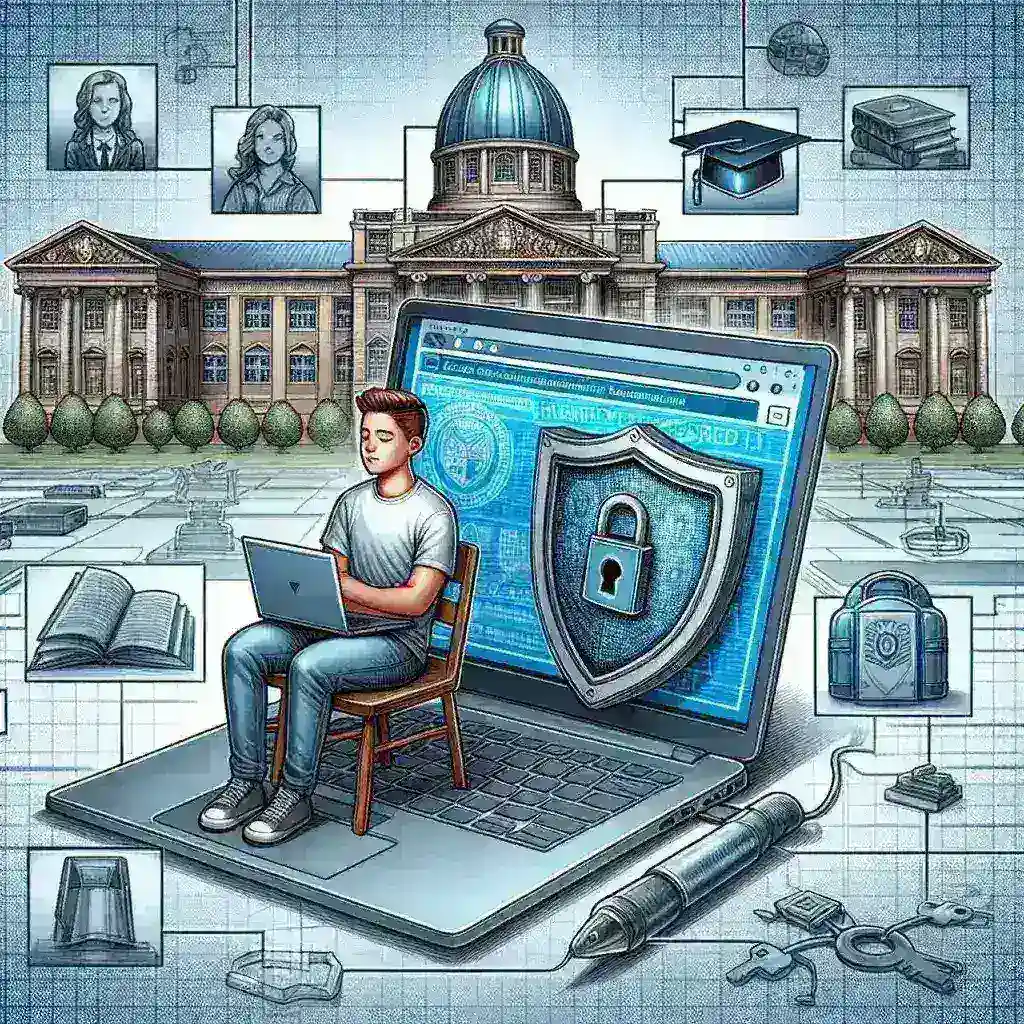The Rise of Secure Exam Browsers in Universities
In the wake of unprecedented disruptions caused by the COVID-19 pandemic, educational institutions around the globe have been compelled to embrace online learning. This shift has brought about a critical need for secure assessment methods, leading many universities to adopt secure exam browsers equipped with webcam privacy guarantees. These innovative technologies are designed to uphold academic integrity while safeguarding students’ privacy during online examinations.
Understanding Secure Exam Browsers
Secure exam browsers are specialized software applications that create a controlled environment for online testing. They limit the functionality of students’ devices during an examination, restricting access to unauthorized resources and minimizing the potential for cheating. The integration of webcam privacy features adds an essential layer of security, reassuring students that their privacy is respected while also maintaining the integrity of the examination process.
Historical Context
The concept of online examinations is not entirely new; however, the need for secure and reliable assessment methods has gained urgency in recent times. Before the pandemic, many universities relied on in-person assessments and traditional exam settings. The rapid transition to online formats has led to a surge in the development and deployment of secure exam browsers. As educational institutions adapt to this new landscape, the importance of upholding academic integrity and protecting student privacy has never been more prominent.
Key Features of Secure Exam Browsers
- Device Lockdown: Secure exam browsers restrict access to other applications, files, and the internet, ensuring that students cannot access unauthorized materials during the exam.
- Webcam Monitoring: Many secure exam browsers require students to enable their webcams, allowing proctors to monitor the testing environment visually.
- Privacy Guarantees: Institutions are now prioritizing solutions that ensure students’ webcam feeds are used strictly for monitoring purposes, with built-in privacy measures to safeguard personal data.
- Automated Proctoring: These systems often incorporate AI-driven technologies to analyze student behavior and flag any suspicious activities, further enhancing the integrity of the examination process.
Pros and Cons of Secure Exam Browsers
Pros
- Enhanced Integrity: By limiting access to unauthorized resources, secure exam browsers help maintain the integrity of assessments.
- Student Confidence: Webcam privacy guarantees provide students with peace of mind, knowing that their personal data is protected.
- Scalability: Secure exam browsers can be deployed across various courses and institutions, making them a versatile solution for online assessments.
Cons
- Technical Challenges: Students may encounter technical issues, such as device compatibility or internet connectivity problems, which could affect their exam performance.
- Privacy Concerns: Despite privacy guarantees, some students may still feel uncomfortable with webcam monitoring, raising ethical questions about surveillance during assessments.
- Cost Implications: The implementation and maintenance of secure exam browsers can be costly for educational institutions, particularly those with limited budgets.
Future Predictions
As technology continues to evolve, the future of secure exam browsers looks promising. We can expect advancements in artificial intelligence and machine learning that will make automated proctoring even more sophisticated. Moreover, educational institutions will likely prioritize transparency and clear communication with students regarding data usage and privacy policies. The integration of blockchain technology may also emerge, providing a decentralized and tamper-proof way to verify assessment integrity.
Real-World Examples
Several universities have already begun implementing secure exam browsers to address the challenges of online assessments. Institutions such as Harvard University and University of California, Berkeley have explored various technologies to ensure secure and fair testing environments. These initiatives have not only helped maintain academic standards but have also contributed to fostering student trust in online examination processes.
Expert Insights
Educational technology experts emphasize the importance of balancing security with student privacy. Dr. Jane Smith, an expert in online education, states, “As we move towards a more digital education landscape, it is crucial that we adopt technologies that respect student privacy while also ensuring the integrity of assessments. Secure exam browsers with robust privacy guarantees are a step in the right direction.”
Conclusion
The adoption of secure exam browsers with webcam privacy guarantees marks a significant shift in how universities approach online assessments. By prioritizing both academic integrity and student privacy, educational institutions can navigate the challenges of remote learning while fostering a culture of trust and transparency. As technology continues to advance, these tools will evolve, offering even more secure and efficient solutions for the future of education.

